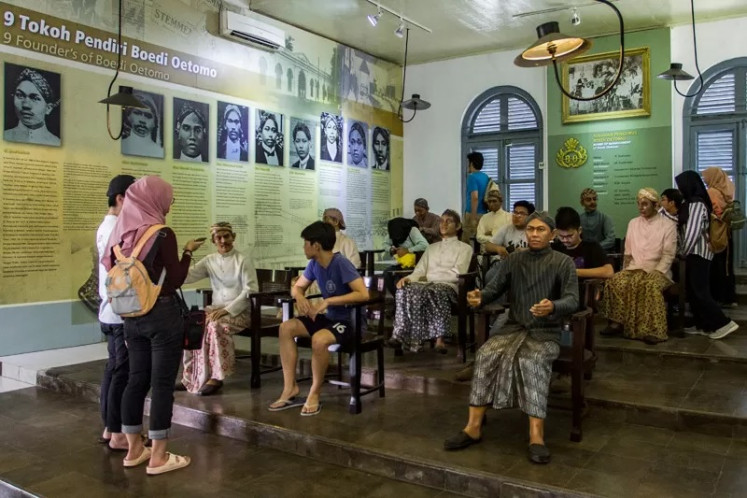Teens living with HIV/AIDS on the rise
The government has been urged to intensify sex education as the number of teenagers living with HIV/AIDS is on the rise in Yogyakarta province, most cases involving male to male sexual relationships
Change text size
Gift Premium Articles
to Anyone

T
he government has been urged to intensify sex education as the number of teenagers living with HIV/AIDS is on the rise in Yogyakarta province, most cases involving male to male sexual relationships.
'Each month an average of three to four teenagers are infected with HIV/AIDS,' said Muhammad Zaenal Abidin, head of the Edelweis Polyclinic for HIV/AIDS patients at the Dr. Sardjito General Hospital in Yogyakarta on Monday.
Abidin said teenagers identified as HIV/AIDS positive were aged between 15 and 20 years old, and already sexually active.
This has been the trend for about four years, a change from the previous trend where those infected by the disease were between the ages of 25 and 49 years old, he added.
Zaenal said currently teenagers were more inclined to get involved in a sexual relationship, including those with homosexual orientation, due to the presence of social media, which enables them to easily find partners.
'Seeking a sexual partner has become very easy, like ordering fried chicken through your smartphone,' he said.
He believes the education office should be serious and brave enough to provide sex education to teenagers, including conducting campaigns on the use of condoms.
'Some of the patients who take anti-retroviral medication are still wearing senior high school uniforms. When I asked them, some said they had been sexually active since junior high school,' said Zaenal.
He added that over the past six months, Edelweis Polyclinic had seen around 30 patients per month, but around 180 people living with HIV/AIDS visit the clinic each month as of the middle of this year.
'So far, sex education is very deficient as it only concerns anatomy, while discussion of sexual functions remain lacking. If a teenager already has a sex drive, what should he or she do? Lessons on morality are also inadequate,' he said.
Zaenal added the main cause of HIV/AIDS spreading was no longer the sharing of needles, but sexual contact.
Based on data from the Yogyakarta City Health Agency, the number of HIV/AIDS cases totaled 802 last year, an increase from 677 cases the previous year and 561 cases in 2012.
The agency said that people living with HIV/AIDS were mostly between 30 and 39 years old (46.9 percent), followed by people under 30 (30 percent) and those from 40 to 49 years old (15.9 percent).
Yogyakarta AIDS Prevention Commission (KPA) spokesperson Siti Baruni said the rising number of teenagers with HIV/AIDS was attributed to the condom use campaign in schools being deemed taboo. This is one of the obstacles faced by the Yogyakarta KPA in curbing the HIV/AIDS infection rate.
Now, condom advertisements in the media have been limited, as television stations can only air them after 9 p.m., whereas earlier they could be aired anytime,' said Siti.
HIV/AIDS counselor Nuraini said parents should supervise their children's social interactions more seriously. 'A child's surroundings are very influential, for instance a teenager could become homosexual for often being in some environments, or experiencing sexual abuse,' she said.









